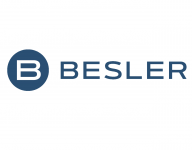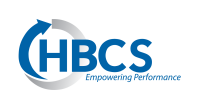In late 2014, a Provider Reimbursement Review Board’s (PRRB) decision highlighted numerous issues supporting the need for hospitals to perform retrospective reviews of initial Medicare Disproportionate Share Hospital (DSH) calculations.
The case of Barberton Citizens Hospital v CGS Administrators, LLC/Blue Cross and Blue Shield Association (Barberton) led to a series of changes—including both PRRB actions and Centers for Medicare and Medicaid Services (CMS) actions in 2016—that impacted the filing of amended cost reports to include additional Medicaid-eligible days.
These changes still impact how hospitals approach this process today. Hospitals need to evaluate their overall Medicare DSH compilation program to verify it’s timely, comprehensive, and captures all Medicaid-eligible days the hospital is legally entitled to claim.
Summary of the Barberton Decision
In Barberton, the Medicare Administrative Contractor (MAC) challenged the PRRB’s jurisdiction to hear a Medicaid-eligible days appeal. The MAC asserted the hospital couldn’t be dissatisfied with the MAC’s determination because the hospital didn’t claim the additional Medicaid days at issue in the initial cost report.
The MAC relied upon the PRRB’s decisions in Norwalk Hospital v Blue Cross and Blue Shield Association and Danbury Hospital v Blue Cross and Blue Shield Association. In these decisions, the PRRB ruled that it’s a hospital’s obligation to submit Medicaid-eligible-days data during the cost-reporting process.
It also ruled that that a hospital has the burden of proof to ensure only days verified with the state as Medicaid eligible are claimed due to Health Care Finance Administration Ruling 97-2, which requires hospitals to claim only state-verified Medicaid-eligible days.
To be heard by the PRRB, a hospital must establish a practical impediment for why it couldn’t claim the days at issue when the cost report was filed.
This article won’t discuss the legal implications this decision has for pending or future PRRB cases regarding the Medicaid-eligible days issue in this article. It will, however, use the provider’s assertions and the PRRB’s conclusions to highlight the importance of retrospective reviews of Medicare DSH calculations and the pursuit of appeals or reopenings of cost reports to include the identified additional days.
The Ruling
In Barberton, the PRRB ruled the following.
Established Impediment
The provider established there was an impediment associated with retroactive eligibility determinations.
Namely, in-process eligibility determinations could take up to a year after the date of service, making it impossible for the provider to claim the days in the initial cost report.
State Database Issues
There may be issues with the state’s database. In this case, there were gaps in the Medicaid eligibility database that could result in an eligibility match receiving a negative determination even though it might’ve received a positive determination at a future point.
Unbeknownst to the hospital, changes to eligibility determinations or demographic data are continually updated in the eligibility database. These changes yield different eligibility verification results based on the timing of the matching frequencies.
Database Access Limitations
In this case, there were limitations around accessing the state’s database because necessary data elements were continually being updated.
The state’s database was dynamic and more times than not, matches performed a significant period of time after the cost report was already filed would yield more complete and comprehensive results.
An Additional Note
The PRRB also noted the provider’s process of identifying Medicaid-eligible days for the initial cost report was comprehensive and that it included, “all available and practical means to identify, accumulate, and verify with the state the actual Medicaid-eligible days that were reported on its Medicare cost reports, and was diligent in following that process.”
However, even with the robust process confirmed by the PRRB, the hospital’s consultants identified a substantial number of additional Medicaid-eligible days that the hospital didn’t identify.
Filing Amended Cost Reports
In the 2016 Outpatient Prospective Payment System (OPPS) final rule, CMS acknowledged that documentation of all Medicaid-eligible days may not be available when filing the initial cost report due to items outside the control of the hospital.
Therefore, CMS established a process so that hospitals can submit an amended cost report to claim additional Medicaid-eligible days, which should be accepted by the MAC.
This opportunity comes with conditions reminiscent of the Barberton decision. Namely, a hospital must do the following:
- File the amendment within 12 months of the initial cost report filing
- Describe its Medicare DSH process used for filing the cost report
- Detail the additional days at issue
- Describe why these days couldn’t be initially claimed
What Hospitals Can Do
After all these years, many hospitals aren’t complying with these requirements.
CMS data shows many hospitals never revisit their Medicare DSH calculation after filing the cost report and aren’t adhering to this 2016 requirement. Additionally, many hospitals still handle this process internally without employing independent resources for a second look which, while not required, is often beneficial.
So, where should hospitals start?
Complete Retrospective Medicare DSH Reviews
Medicaid eligibility determinations are a dynamic process and hospitals can’t be assured that they’ve captured all the days they’re legally entitled to claim until long after filing the cost report.
As with many functions in many businesses–you can’t be an expert for all things, so consider independent help. Determining a patient’s Medicaid eligibility is much more of a detailed and comprehensive process than recognized by hospitals.
All states have different processes and procedures for obtaining eligibility matches, and most states have hundreds of eligibility codes to evaluate–many of which aren’t eligible for inclusion in the Medicare DSH calculation.
File PRRB Appeals
Where appropriate, it may make sense for hospitals to file PRRB appeals.
Pursue Cost-Report Reopenings
Analyzing cost-reports for federal fiscal years 2014–2019 in the HCRIS database showed that where days did change, on average Medicaid-eligible days increased between 1% and 9%.
Practical Next Steps
Evaluate Current Process
Evaluate your current process for compiling Medicaid days in the initial cost report to verify you’re putting your best foot forward.
This includes verifying you meet the standard the PRRB set forth in Barberton, which included using all “available practical means to identify, accumulate, and verify Medicaid-eligible days” when filing cost reports.
You’ll also want to make sure you meet the standard set by CMS in the 2016 OPPS final rule.
Consider a Third-Party Review
Consider employing an independent third-party review of Medicaid eligibility days subsequent to the filing of the cost report but within the timeline established by the current CMS process to amend cost reports.
Yes, you can refresh the work you performed internally at a subsequent date, but that wouldn’t necessarily give the hospital the best opportunity to ensure it’s capturing all the Medicaid patient days it’s legally entitled to claim.
 by Mike Newell, Partner, Moss Adams, Health Care Consulting
by Mike Newell, Partner, Moss Adams, Health Care Consulting
Michael Newell has worked in healthcare financial management since 1982. He specializes in preparing and reviewing Medicare DSH and Worksheet S-10 for cost report filings. He can be reached at (469) 587-2120 or michael.newell@mossadams.com.















